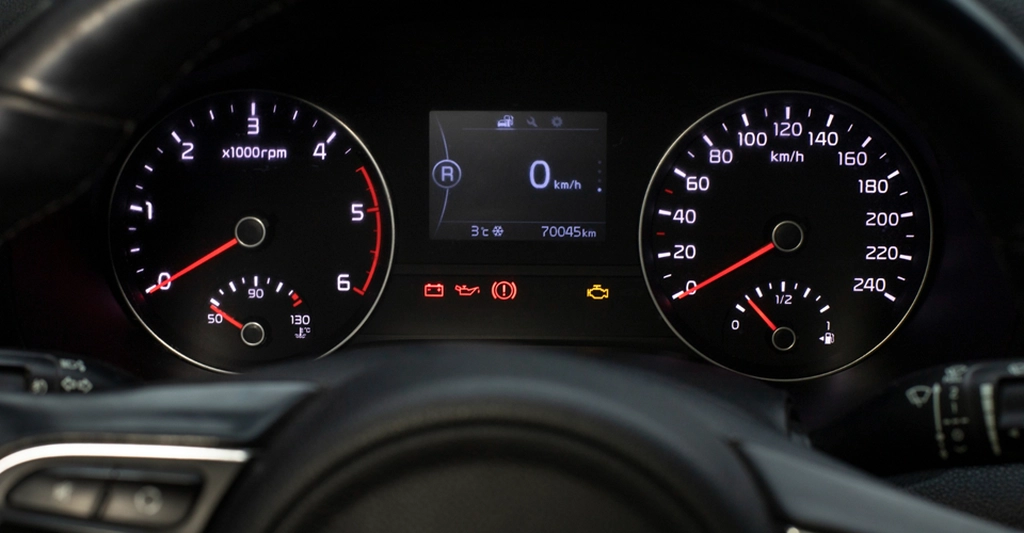If your car feels sluggish or struggles to pick up speed when you press the accelerator, you’re not imagining things and you’re definitely not alone. A loss of power during acceleration is a common issue that can affect vehicles of all types, whether petrol or diesel, new or old. It can be subtle at first or sudden and dramatic, but either way, it’s frustrating and can even be dangerous if left unaddressed.
In this blog, we’ll explore the most common reasons why your car may be losing power when accelerating and what you can do about it. Whether you’re a daily commuter or just enjoy the occasional weekend drive, this guide will help you understand what’s happening under the hood and when it’s time to book that workshop visit.
1. Clogged Fuel Filter
One of the most common culprits behind poor acceleration is a clogged fuel filter. Over time, dirt, rust, and other contaminants can accumulate in your fuel system. The filter’s job is to keep this debris from reaching your engine. But if it gets too dirty, it restricts fuel flow meaning your engine isn’t getting the petrol it needs to perform.
Symptoms: Hesitation during acceleration, rough idling, and poor engine performance.What to do: Replace your fuel filter according to your vehicle’s maintenance schedule, usually every 20,000–40,000 km. If you’re unsure, have a mechanic check fuel pressure and flow
2. Dirty or Blocked Air Filter
Your engine needs a clean, steady flow of air to burn fuel efficiently. A dirty or clogged air filter restricts this airflow, which can affect acceleration and reduce overall engine performance.
Symptoms: Reduced throttle response, poor fuel efficiency, and black smoke from the exhaust.
What to do: Replace your air filter every 15,000–30,000 km depending on driving conditions, especially in dusty or sandy environments.
3. Failing Mass Airflow Sensor (MAF)
The Mass Airflow Sensor measures the amount of air entering your engine and helps determine how much fuel to inject. If the sensor is dirty or malfunctioning, it can send incorrect data to the ECU (engine control unit), leading to poor acceleration.
Symptoms: Engine hesitation, loss of power, and increased fuel consumption.
What to do: Use a dedicated MAF sensor cleaner to gently clean the sensor, or have it replaced if faulty.
4. Malfunctioning Oxygen Sensor
The oxygen sensor monitors the amount of oxygen in your exhaust gases to ensure optimal fuel-air mixture. If it fails, the engine may run either too rich (too much fuel) or too lean (too little fuel), causing a noticeable dip in performance.
Symptoms: Engine warning light, jerky acceleration, or failed emissions test.
What to do: Scan for fault codes using an OBD scanner. Replace the oxygen sensor if readings are abnormal.
5. Clogged Catalytic Converter or Diesel Particulate Filter (DPF)
A clogged catalytic converter or diesel particulate filter can severely restrict exhaust flow, essentially “choking” your engine. This results in reduced power and poor acceleration, especially at higher speeds.
Symptoms: Sluggish acceleration, excessive heat under the vehicle, and reduced engine performance.
What to do: Have your exhaust system inspected. In some cases, a forced DPF regeneration may be needed.
6. Fuel Pump Problems
The fuel pump ensures that petrol is delivered from the tank to the engine at the correct pressure. If it starts to fail, your engine might not get enough fuel during acceleration.
Symptoms: Engine stuttering, loss of power under load, and difficulty starting.
What to do: A mechanic can run fuel pressure tests to determine if your pump is the issue. Replacing a failing fuel pump is often the only solution.
7. Faulty Fuel Injectors
Fuel injectors spray petrol into the engine’s combustion chamber at high pressure. If one or more injectors are clogged or malfunctioning, your engine won’t get the precise fuel amount it needs, leading to uneven acceleration.
Symptoms: Engine misfires, reduced performance, and increased emissions.
What to do: Cleaning or replacing injectors can restore performance. Some workshops offer ultrasonic cleaning for thorough maintenance.
8. Worn Spark Plugs (Petrol Engines)
Spark plugs ignite the air-fuel mixture inside the engine. When they’re worn out or fouled with carbon, they may not spark consistently causing poor combustion and weak acceleration.
Symptoms: Misfires, poor throttle response, and rough idling.
What to do: Replace spark plugs every 30,000–60,000 km or as recommended by your manufacturer.
9. Low Compression in Engine Cylinders
Engine compression is essential for generating power. If compression is low due to worn piston rings, damaged valves, or a head gasket leak you’ll experience weak acceleration and poor performance.
Symptoms: Persistent power loss, engine misfires, and difficulty starting.
What to do: A compression test can diagnose the problem. This is a more serious issue and usually requires professional repair.
10. Turbocharger Failure or Boost Leak
If your car is turbocharged, a sudden drop in power could point to a faulty turbo or a leak in the boost piping. Turbochargers help the engine produce more power, especially during acceleration.
Symptoms: Whistling or hissing sounds, black smoke, and sluggish performance.
What to do: Inspect turbo pipes and connections. If the turbo itself is damaged, it will need a professional rebuild or replacement.
Practical Tips to Troubleshoot Power Loss
- Scan for Fault Codes: Use an OBD-II scanner to detect sensor failures or engine faults.
- Listen for Odd Sounds: Whistling, hissing, or knocking sounds may indicate leaks or internal damage.
- Monitor Warning Lights: If the check engine light is on, don’t ignore it it’s your car’s way of asking for help.
- Keep Up with Maintenance: Regularly replace filters, fluids, and spark plugs as part of your service routine.
- Drive Mindfully: Avoid aggressive driving on a cold engine. Let your car warm up for a minute or two, especially in cooler regions.
Still Unsure? Let MotorHub Help
If your car is losing power and you’re not sure where to start, our experts at MotorHub can diagnose and repair the issue quickly. Whether it’s a minor sensor issue or something more serious, we’ll get you back on the road with confidence.
Book a diagnostic check through our MotorHub platform, and let our network of trusted mechanics take care of the rest.



